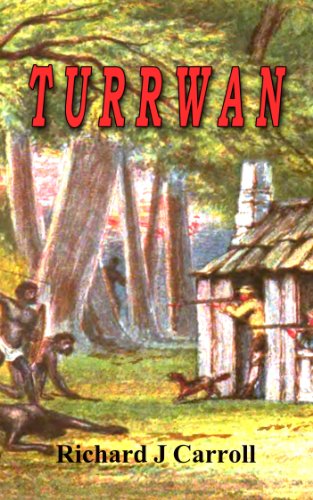Turrwan
Turrwan is set in the early colonising days of Australia, when a relatively small free “whitefella” population controlled rather larger convict and ex-convict groups by force. At the same time there was a strong push to exploit tracts of land for their natural resources, regardless of the wishes and sensitivities of the indigenous peoples. The author has built his story around Tom Petrie, the son of Scottish parents. Unusually, amongst his peers, Petrie befriended aboriginal groups in the Brisbane area, and was in turn accepted by them at their settlements and sacred events. He is still remembered with warmth today.
From the information point of view Turrwan is faultless. Richard has drawn heavily on contemporary records of Petrie’s life, including an account written by one of his daughters. The people, places, and key events of the late nineteenth century are carefully reported. While the brutal dominance of the new colonists is clear, the book does not whitewash any group, and both personal and collective cruelty, faithlessness, and wrongdoing on all sides are made clear. Where I felt that more could have been done was with the storytelling. The author has kept very closely to a diaristic style, and the short chapters often feel disjointed. The overall story is sometimes lost in the careful adherence to the source materials.
I had also hoped to find some reflection of either the spirituality or narrative style of the aboriginal people, especially during the times when Tom draws most closely to the Turrbal tribe. This does not happen; their capacity in both areas is mentioned in passing, but does not affect the writing style, which remains solidly European colonial throughout.
An interesting book, but one which feeds the mind rather more than it excites the emotions.










